News
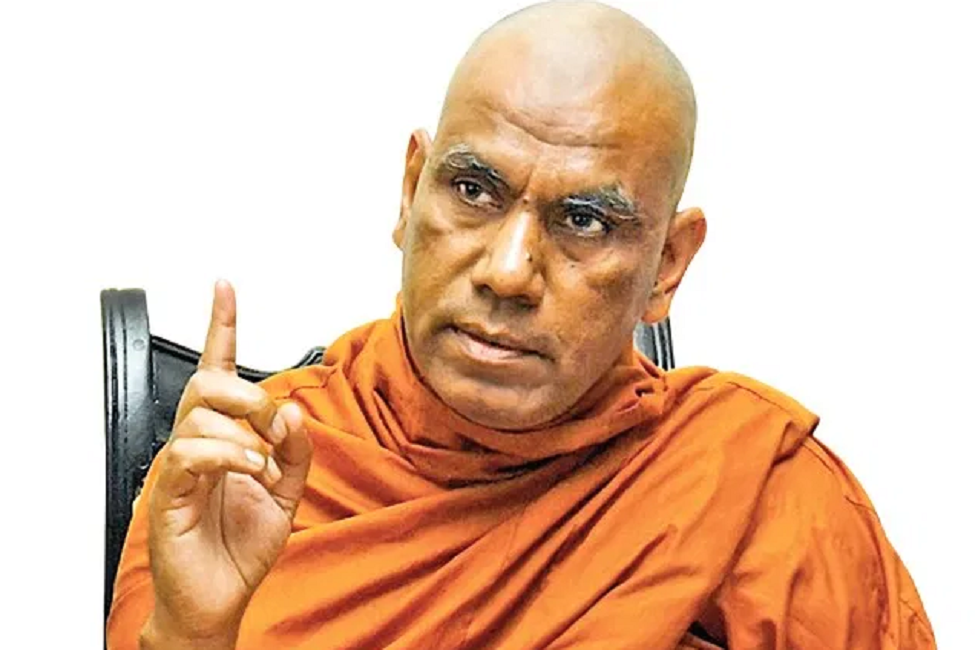
There's a gang willing to sacrifice Sri Lanka's national resources - Ven. Sobitha Thero
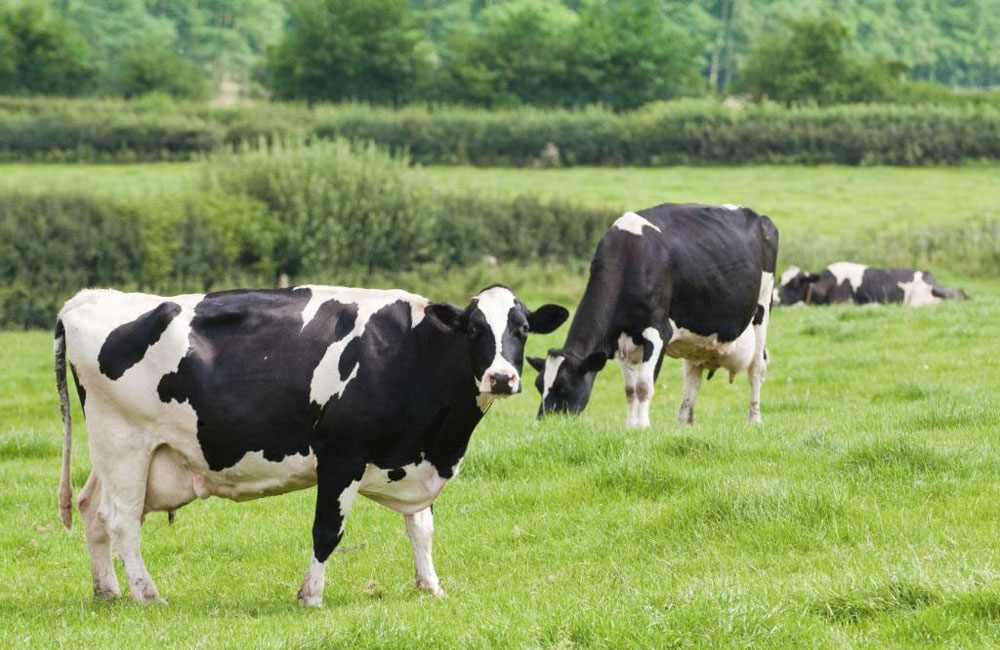
Pelwatte Dairy to facilitate Govt.'s move to improve countrywide milking process
The company has expressed its willingness to help establish milking sheds and chilling centres in the Government proposed lands.
With announcements of special lands being promised incidentally, The proposed chilling centres and milking sheds will help farmers milk their cows in a safe and clean environment, collect the milk and store them in chilling centres.
This will be an immense support in getting it delivered to the company on time thereby also increasing the productivity and efficiency of the industry, official sources said.
The whole process will be able to be easily monitored and cleared by the veterinarians and health officials.
Commenting on the announcement to establish such sheds, Pelwatte Dairy Industries Managing Director Akmal Wickramanayake said: “they believe that these establishments will help secure spots for milking, storage and act as points of collection and transportation."
The milking sheds will be equipped with all necessary equipment as milking machines, required infrastructure and facilities to provide a comfortable environment for the cattle and the farmers.
The milking systems will be established as such as to provide a constant and repeatable environment every day, ensuring safe and healthy practices.
Milking machines will help mitigate the risks and improve quality and overall speed, as opposed to doing it by hand.
The facility will also arrange and mitigate overcrowding and spoilage before processing.
The sheds will act as direct one stop contact points to the company’s delivery system thereby establishing a steady stream of delivery processes ensuring that the milk reaches the chilling centres and factory in time.
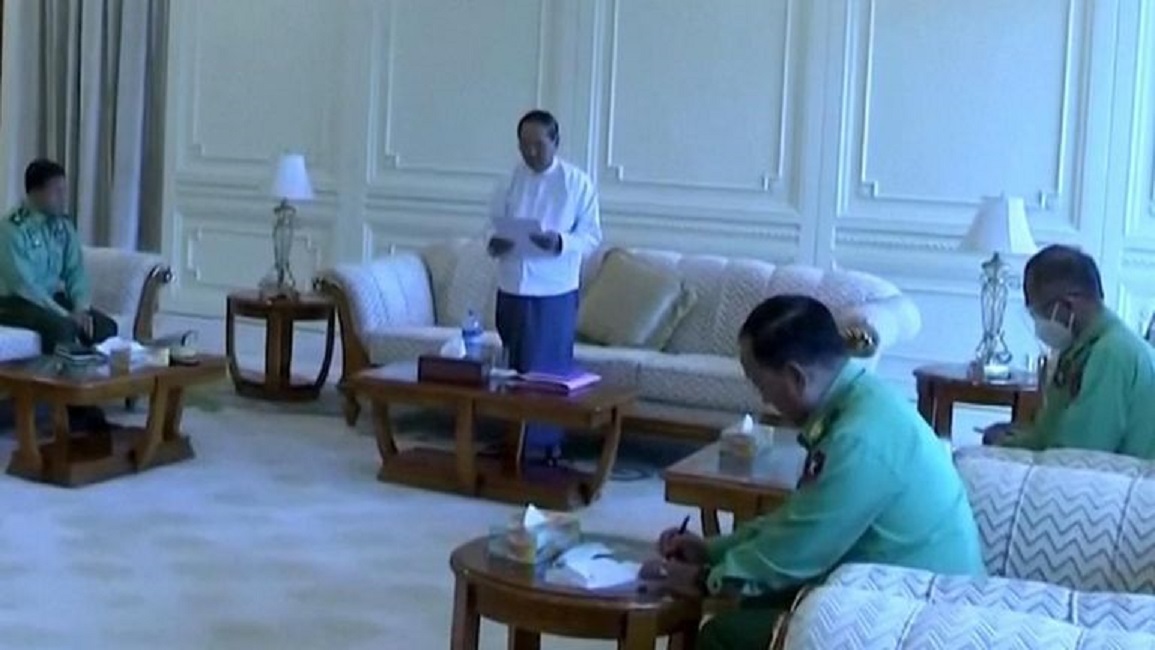
Myanmar military stages coup; detains leading politicians including Aung San Suu Kyi
Myanmar's military seized control of the country on Monday and detained leading politicians, including Nobel Laureate Aung San Suu Kyi.
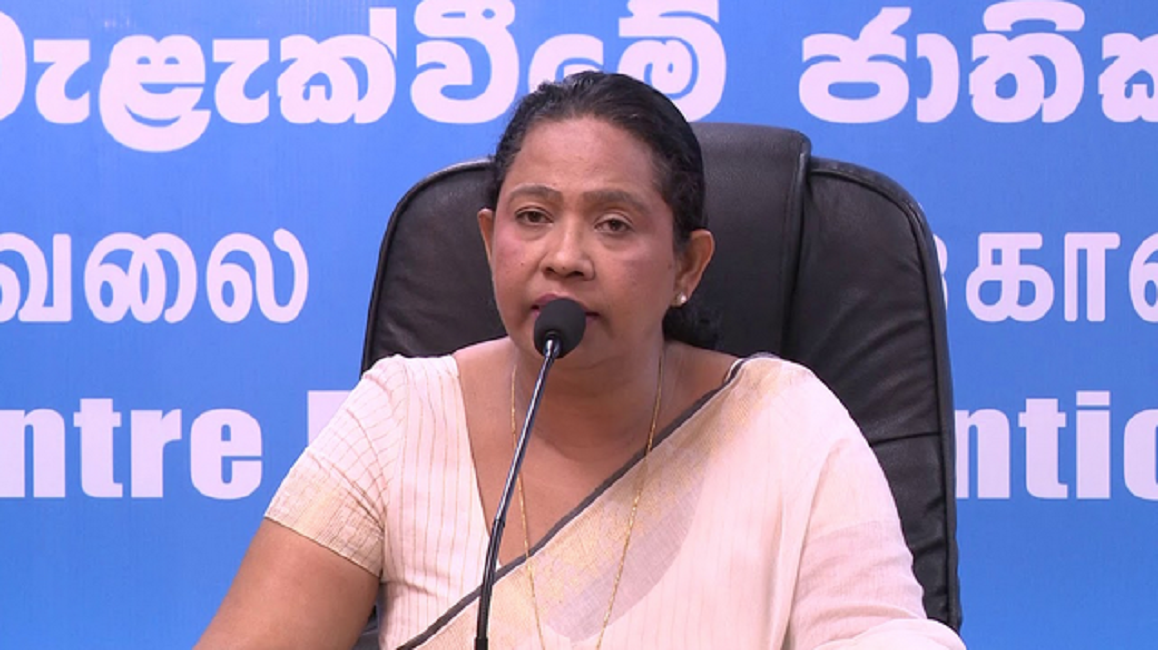
Health Minister to take legal action against fake news media platforms
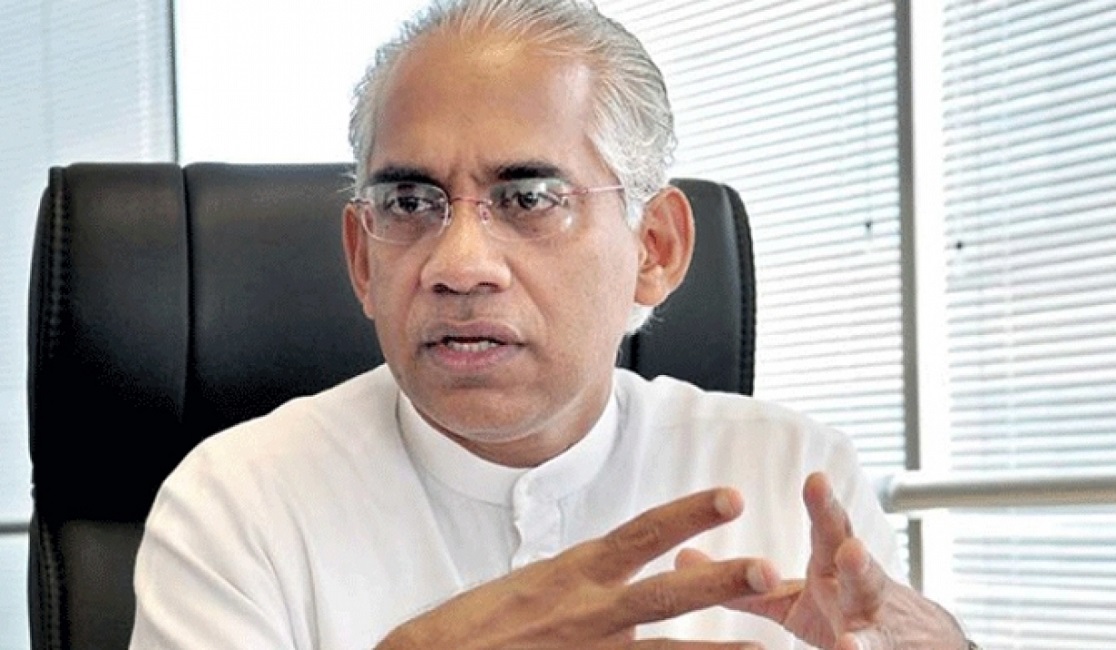
Eran warns of undue executive intervention in judicial functions through Presidential Commissions
The current problems of the country have nothing to do with the laws and statutes but with the governance where the executive has taken over the functions of the judiciary, opposition lawmaker Eran Wickramaratne said.
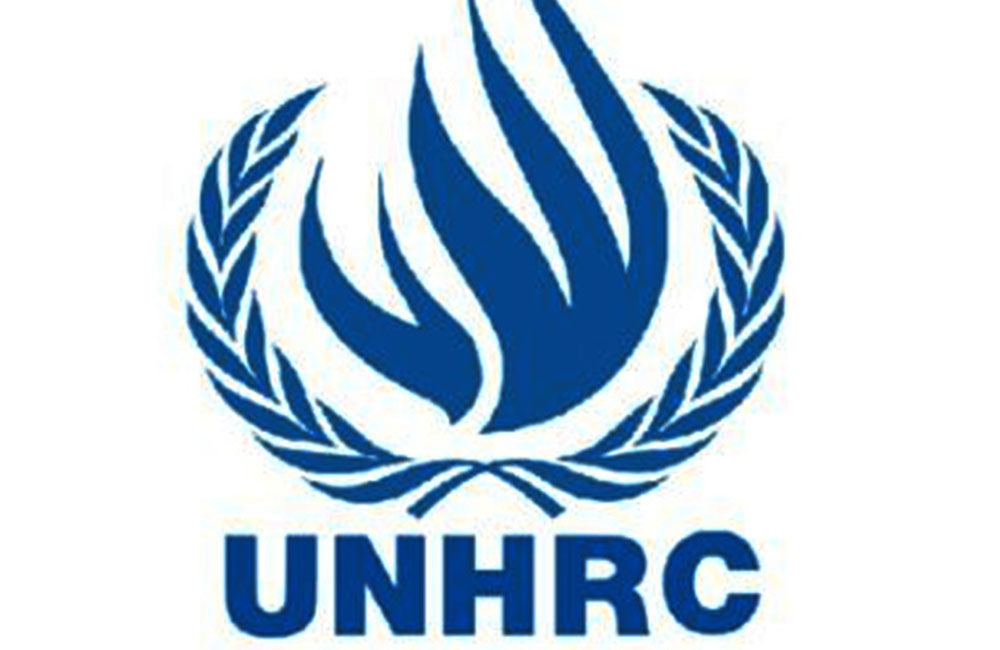
UNHRC urged to adopt new resolution against Sri Lanka
HRW urged the council to adopt a new resolution to enhance the scrutiny of Sri Lanka’s deteriorating human rights situation and pursue accountability for past and recent violations.
In her report released on January 27, 2021, High Commissioner for Human Rights Michelle Bachelet said she was “alarmed” by Sri Lanka’s deteriorating human rights situation and set out steps that the Human Rights Council should take to confront the growing risk of future violations.
Since the Government of President Gotabaya Rajapaksa has withdrawn its support for the 2015 consensus resolution seeking justice and reconciliation, and shown general disregard for upholding basic human rights, the council should act to protect those most at risk and advance accountability for grave international crimes, Human Rights Watch said.
“The UN High Commissioner’s report highlights Sri Lanka’s egregious record of complete impunity for appalling crimes, and very disturbing developments under the Rajapaksa administration,” said John Fisher, Geneva Director at Human Rights Watch.
“The Human Rights Council has given Sri Lanka every opportunity to address these issues over many years, and now greater international involvement is needed to help protect vulnerable groups and hold those responsible for grave international crimes to account.
During the final months of the civil war between the Government and the separatist Liberation Tigers of Tamil Eelam (LTTE) that ended in May 2009, both sides committed atrocities that killed tens of thousands of civilians.
UN investigators found that these atrocities may amount to war crimes and crimes against humanity. Grave abuses included summary executions, torture, rape, and the murder and enforced disappearance of journalists and activists.
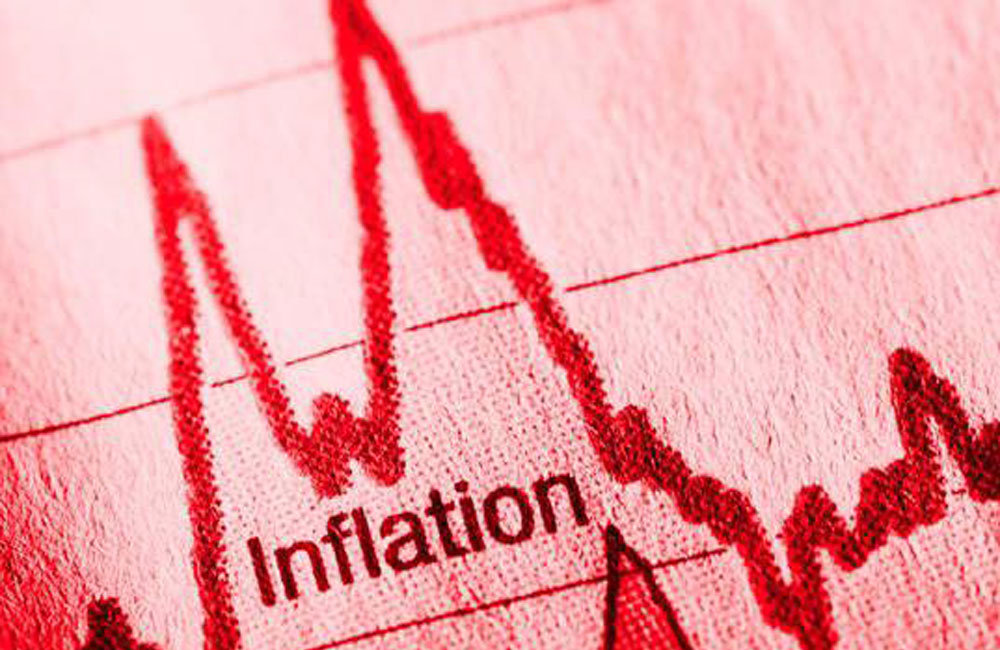
Inflation dips as food prices soar
But the reality was that Sri Lanka’s soaring food prices at present were due to bad weather and intermediaries, and they will come down in time for April New Year, market sources revealed.
"It is well-known that vegetable prices were increasing rapidly in the last few months," a spokesman of a traders' association in Colombo said.
"The main reason for this was the climate situation which resulted in excess rain in both upcountry and low country regions simultaneously," he added.
Headline inflation, as measured by the year-on year (Y-o-Y) change in the Colombo Consumer Price Index decreased to 3% in January 2021 from 4.2% in December 2020, Central Bank claimed.
Further, non-food inflation (Y-o-Y) decreased to 1.4% in January 2021 from 2.0% in December 2020.
The change in the CCPI measured on an annual average basis decreased to 4.3% in January 2021 from 4.6% in December 2020.

Sri Lanka Police commences training programmes under Indian Technical and Economic Cooperation
The Inaugural Session was prominently attended by Sri Lankan police officers including Senior DIG Mr Priyantha Weerasooriya and Indian officers from the Bureau of Police Research and Development (BPR&D), Ministry of External Affairs and High Commission of India, Colombo.
BPR&D is the nodal agency for organising these programs at their various training institutes. Pertinently, the course contents have been tailored to fulfil the requirements of Sri Lankan Police and designed in a way where Sri Lankan police officers can have a formal interaction with the Indian police to share and learn from each other’s experiences.
It will enhance policing capabilities of Sri Lankan Police to face the modern days’ challenges. Importantly, programs would cover topics such as interrogation techniques, human trafficking, investigation of financial frauds, narcotics and psychotropic substances, intelligence and national security workshop, cyber crimes, de-radicalisation and counter terrorism.
For every course, 25 officers, ranging from ranks of Superintendent of Police, Chief Inspector of Police, Inspector of Police and Sub-inspector of Police are being nominated by Sri Lankan Police.
The Indian High Commission said that Sri Lankan Police officers had been invited in the past for training in the premier Police training institutions across India based on the training needs of the Sri Lankan police.
"During 2018 and 2019, over 200 police and legal officers were trained in India in diverse topics at various institutes. These courses were fully funded by the Government of India and have been beneficial in capacity building of Sri Lankan police. India also benefits from such interaction and experience sharing with the Sri Lankan police," the High Commission said.
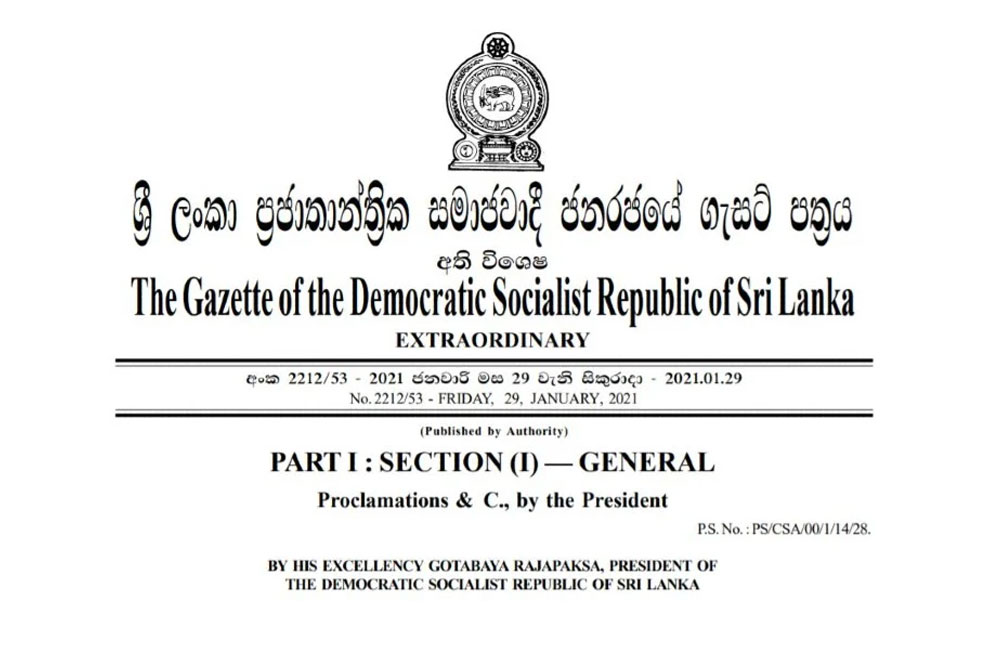
President appoints Special Commission to implement recommendations of PCoI on Political Victimisation
President Gotabaya Rajapaksa has appointed a Special Presidential Commission to implement the recommendations of the Presidential Commission of Inquiry (PCoI) into political victimisation. The three member Commission will be headed by Supreme Court JudgeDhammika Priyantha Samarakoon. Supreme Court Judge Khema Kumuduni Wickramasinghe and Appeal Court Judge Rathnapriya Gurusinghe have been appointed as the other members of the commission.
In January 2020, President Gotabaya Rajapaksa appointed a three-member Presidential Commission of Inquiry to inquire into political victimizations that have taken place from 2015 to 2019.
The Commission were tasked with investigating incidents of political victimisation which had taken place in the wake of investigations conducted by the Commission to Investigate Allegations of Bribery or Corruption (CIABOC), FCID, CID, and the Special Investigation Unit of the Police from January 8, 2015, to November 16, 2019.
The final report of the Commission consisting of three volumes and 2043 pages was handed over to President Gotabaya Rajapaksa at the Presidential Secretariat on December 08, 2020.
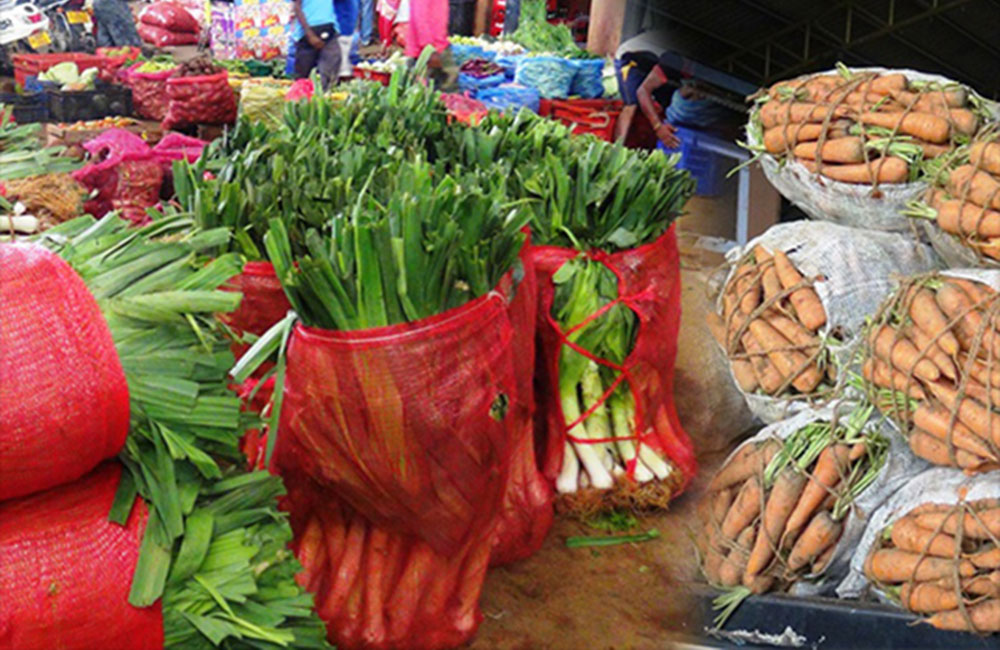
Substantial hike in vegetable prices
The hike in prices is due to the low supply of vegetable stocks as a result of inclement weather conditions experienced in the country, reported the News 1st correspondent in Dambulla.
Accordingly, 1 kilogram of green chilli was priced at a record Rs. 700, while a kilo of pumpkin was sold at Rs. 240 and a kilo of corn at Rs. 140.
Among vegetables supplied to the Dambulla Economic Centre from Nuwara Eliya, a kilo of beetroot, carrot and leeks were priced at Rs. 240, Rs. 230 and Rs. 130 respectively.
Traders at the Dambulla Economic Centre believe the prices will continue to remain at higher rates until the prices can be revised once an adequate supply of vegetable stocks are delivered by farmers.
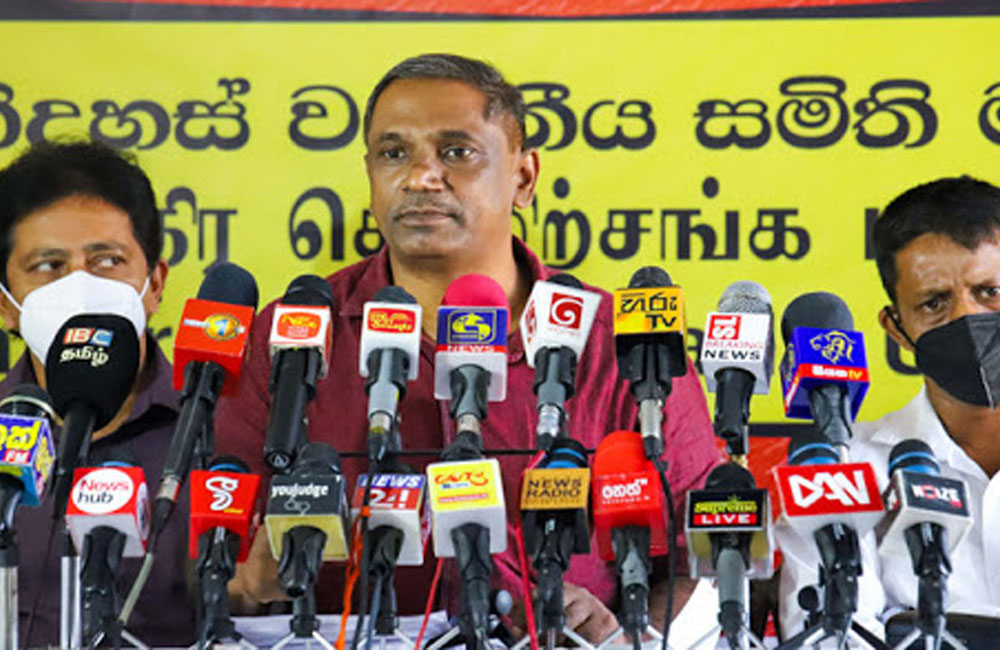
ECT: Trade unions raise suspicions on Govt. members receiving wages from Adani
General Secretary of the Independent Port Employees Union D.K. Jayasekera, General Secretary of the Jathika Nidahas Sevaka Sangamaya (JSS) Thushara Mendis, President of the Jathika Nidahas Sevaka Sangamaya of the Engineering Corporation Sameera Sudarshana and its General Secretary Nalaka Silva were also present at the press conference.
The allegations levelled by Karunathilaka Herath comes in the wake of reports on social media which stated that both members of the government and the opposition are receiving monthly wages from the Adani Group of India and as a result, are acting according to the whims and fancies of the Indian conglomerate.
However, it is now being revealed how the Chinese Yuan played a role behind the spate of protests that were initiated against the move to bring in Indian investment for the development of the ECT.
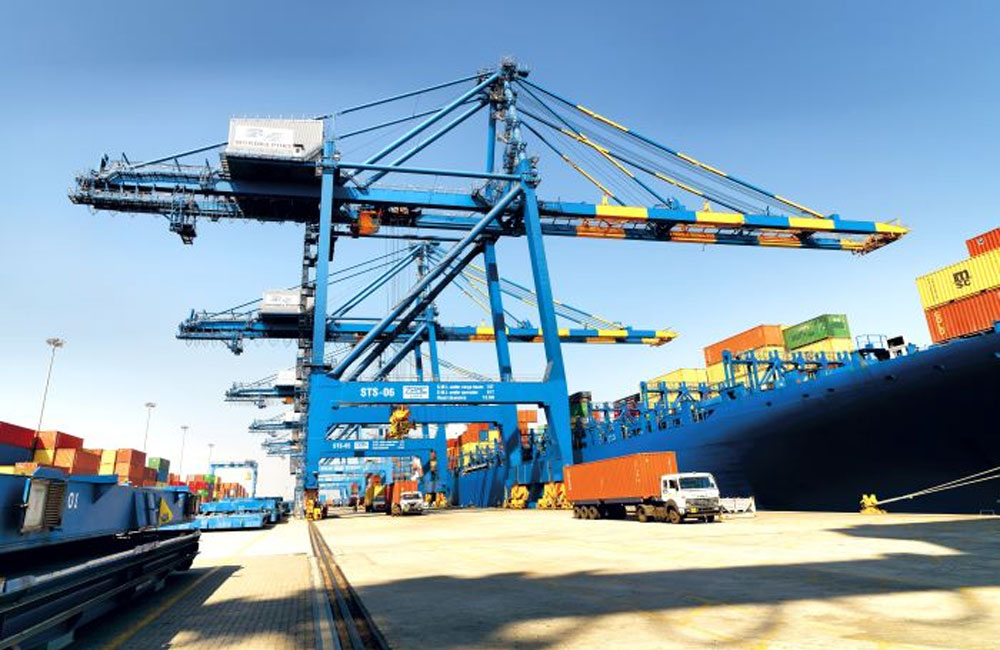
Adani names John Keells as its local agent
The Indian Company has stepped into take over 49% of shares of Colombo East Terminal amidst protests of works and sections of the society with majority of the people.
Workers at the Port of Colombo began a protest from Jan. 29, over the proposed involvement of Indian and Japanese companies in the operation of the Eastern Container Terminal (ECT).
The organisers, together with other allied organisations such as labor unions across the country and political parties, have also warned of demonstrations and strikes in the coming days.
Following the visit to Sri Lanka by Indian Foreign Minister Dr. S. Jaishankar on 6 January 2020, it was decided to award the expansion project of the ECT to Adani Group of India.
Adani Group is India's largest integrated ports and logistics company.
A Memorandum of Corporation (MoC) to manage the ECT between Sri Lanka, India and Japan was signed in March, 2019.
However, the new Rajapaksa government appointed a committee to review all the projects that were to be awarded to foreign countries.
Subsequently, the visiting Indian Foreign Minister and his Sri Lankan counterpart held discussions on several issues pertaining to India's interests and decided to offer the ECT to Adani Group.
India had this week said that it remains committed to assisting Sri Lanka with increased foreign investment and cooperation in infrastructure projects like ports, airports, energy including renewable such as solar and wind.
India's High Commissioner to Sri Lanka Gopal Baglay said that he is confident that working together, India and Sri Lanka will be able to successfully overcome the contemporary economic and other challenges.
Page 375 of 663